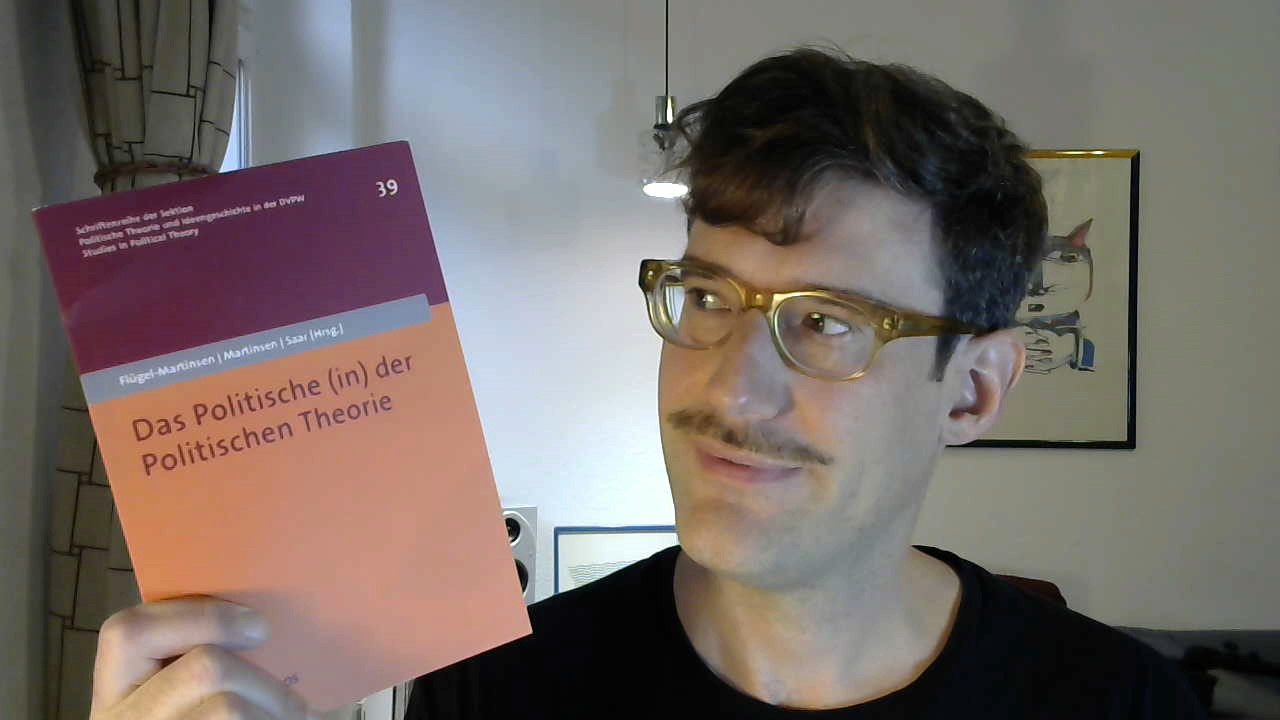Publication: The Last Universalism. Foucault’s Freedom and the Justification of Radical Democracy in Postfundamentalism, in ‘The Political (in) Political Theory’

Automatically translated without proofreading
The debate about “the political” continues: the new anthology, edited by Oliver Flügel-Martinsen, Franziska Martinsen, and Martin Saar, explores the meaning of the concept for political theory. I am very pleased to be included with a contribution on the problem of normative justification in postfoundationalism. If the political is contingent and a matter of power, and therefore no ultimate justifications are possible, how can universalist arguments still be made?
The thesis: the last possible universalism is continuous critique, which must be guaranteed by the democratic institutional structure. The text is an important preliminary work to my current research on identity politics. There I emphasize that the critique necessary to democratize democracy is provided by particular identity politics projects. But even these identity politics depend, first, on appropriate institutions (in an authoritarian regime that oppresses minorities, identity-political articulations are also more difficult) and, second, the argument for democratization through particular identity politics rests on a universalist rationale, the basic structure of which is explained in the now-published essay.
Abstract
The debate on political difference highlights contingency and conflictuality as fundamental properties of the political. This poses a problem for postfundamentalist democratic theory that wants to argue on par with this debate: by making all normative justifications contingent, it is initially unclear what kind of democratic institutions can be justified and how, and even whether there can be a normative justification for democratic institutions argued from postfundamentalist social ontology at all. My thesis is that freedom, understood as continuous self-reflexive critique, is the normative concept that can be derived from the social ontology of conflict and contingency. In other words, freedom as critique is that universalism which derives from the ontology of particularism. Freedom as critique can thereby, on the one hand, describe the operation of some institutions in liberal-pluralist democracies, and, on the other hand, serve as a radical democratic normative concept of critique for the analysis of their dysfunctionality. To justify this thesis, I go back to a theorist who forms a basis of the current debate on the political: Foucault, whose theory of power can be considered an approach to a social ontology of contingency and conflictuality. At the same time, Foucault has singled out the concept of freedom as the normative concept that fits this ontology.
The volume
The volume is brings together the central German voices on the debate about radical democracy and the political. The other contributions are definitely recommended:
- The Prehistory of Radical Democracy. Historical-Programmatic Notes on the State of Political Theory (Oliver Marchart).
- The Political and the Indispensability of the Critique of Domination, or: Populism and the (Radical-)Democratic Promise (Martin Nonhoff)
- The ‘Who’ of Political Action. On the Potential of the Debate about ’the Political’ for a Democratic Political Project (Anastasiya Kasko).
- The Haunting of the Political. Resistant figures beyond ethnonational and institutional confinement of politics (Mareike Gebhardt). The political, agonal politics and the resistant of political practice (Manon Westphal)
- The Political (in) Deconstruction (Markus Wolf)
- Bruno Latour and the Phantoms of the Political: Actor-Network Collectives between Association and Dissociation (Hagen Schölzel)
- The Political in Civic Education (Werner Friedrichs)
Cite and download
Schubert, Karsten (2021): Der letzte Universalismus. Foucaults Freiheitsdenken und die Begründung von radikaler Demokratie im Postfundamentalismus. In: Oliver Flügel-Martinsen, Franziska Martinsen und Martin Saar (Hg.): Das Politische (in) der Politischen Theorie: Nomos, 43–58. https://doi.org/10.5771/9783748927907-43
Final Manuscript
Academia.edu
Related Posts
- Conference: Transformations of the Political. Radical Democratic Theory for the 2020s, 19. October 2022
- New Publication: Constructivist Identity Politics. Why Democracy Requires Particular Positioning (Journal of Political Science), 25. October 2021
- September program: Foucault and sexual liberation, academic freedom and authoritarianism, identity politics and polarization, the future of radical democracy, neoliberalism and anti-genderism, 5. September 2021
- New Publication: The Christian Roots of Critique. How Foucault's Confessions of the Flesh Sheds New Light on the Concept of Freedom and the Genealogy of the Modern Critical Attitude, 17. March 2021
- New Publication: Institutionalization of Freedom in Law. Foucault and the Post-Marxist Critique of Law, 12. October 2020
Radical DemocracyThe PoliticalInstitutionsFreedom as CritiqueFoucault
559 Words
2021-10-06 09:55 +0200